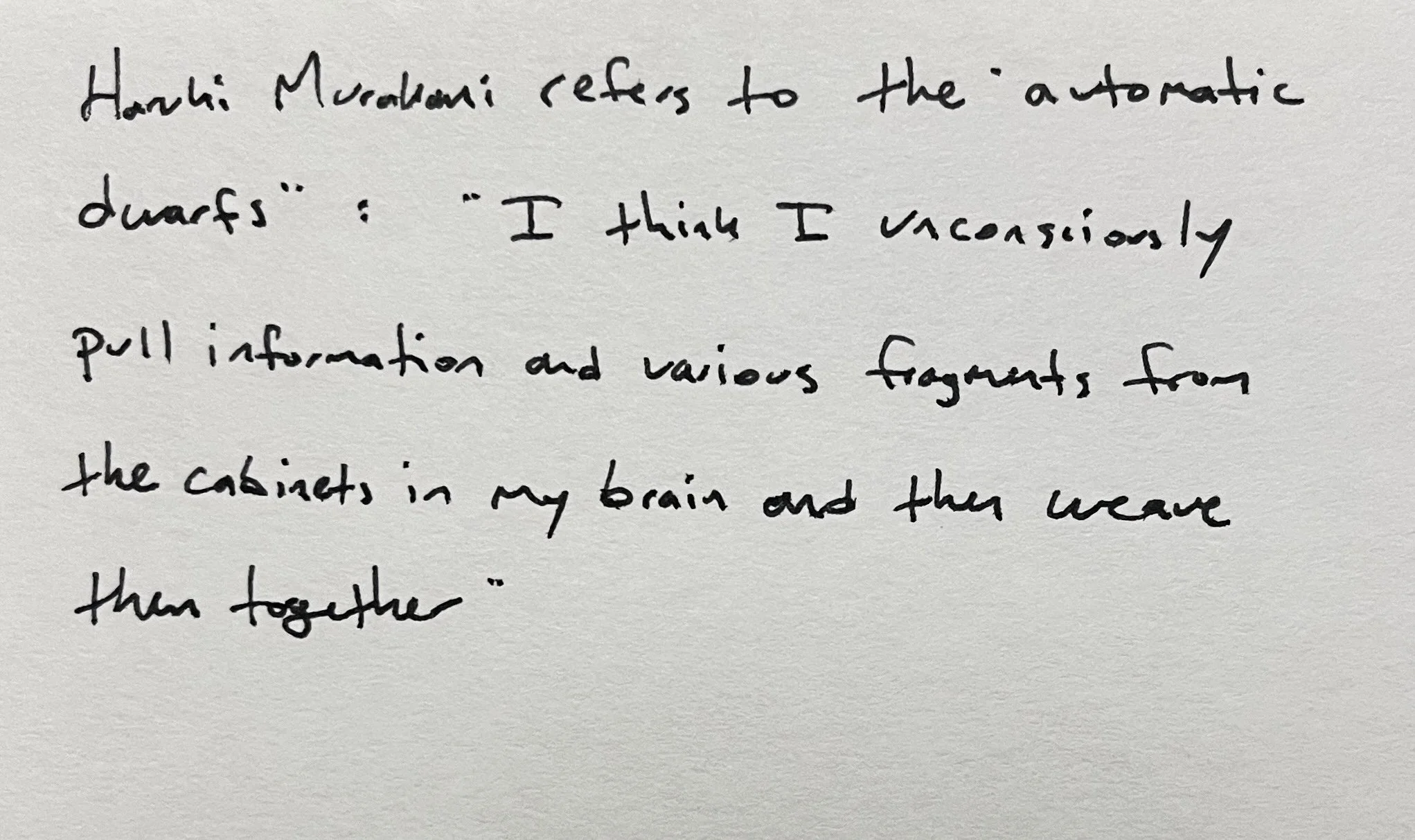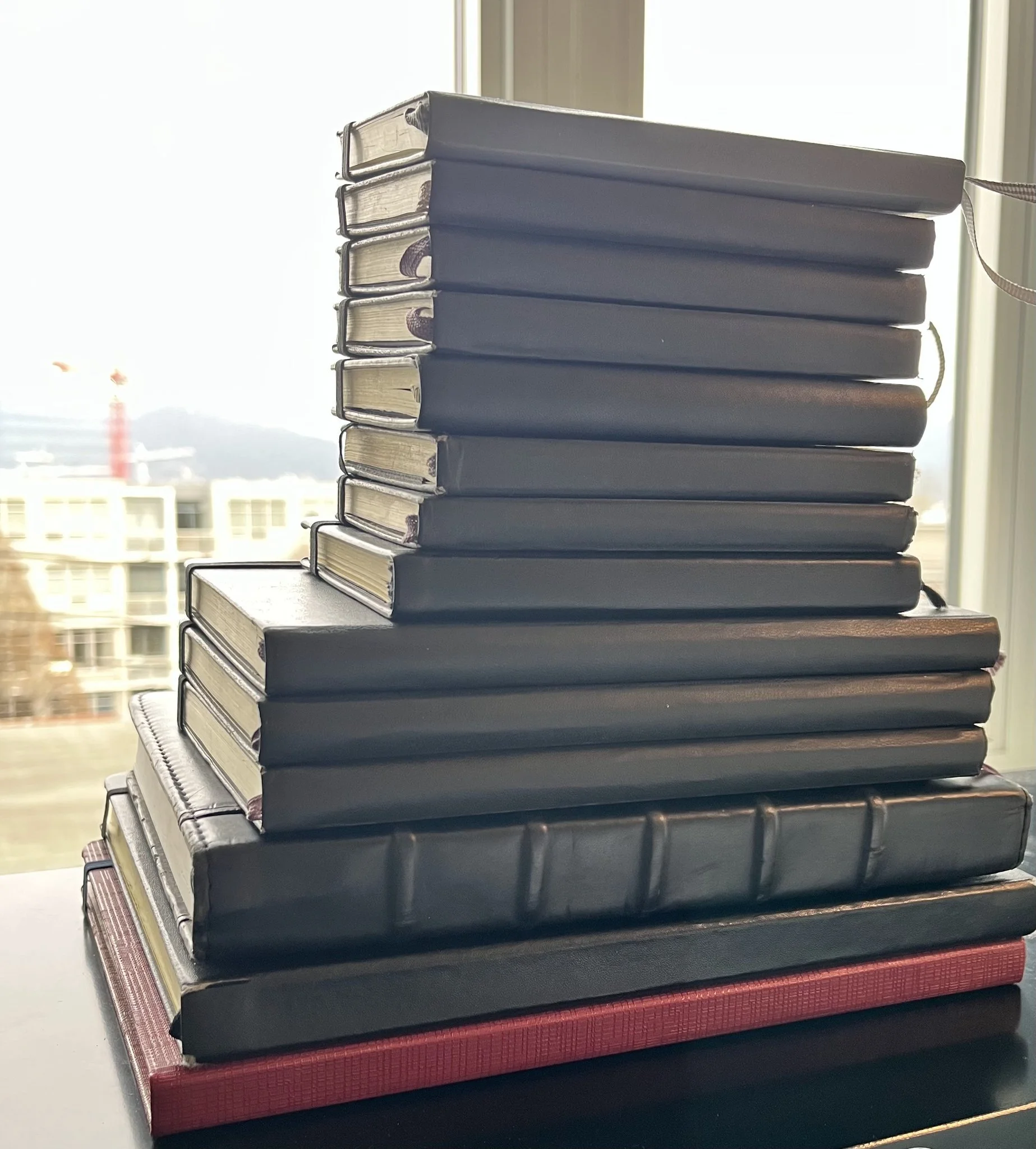Personal Knowledge System - Developing a Commonplace Book
“My system has allowed me to write 4 books in the last few years. I’ve proven that it works, that it’s produced results. Your system may be more elegant, more perfected. But what has it allowed you to produce?”
I’ve always felt the need for a consistent way to remember (and make use of) everything I read. Information comes at us from so many different places- books, podcasts, articles, conversations- there seems to be a need for a way to capture it and see the connections between everything. I think a lot about the importance of having a structure around information gathering- incoming information should have a process to flow through and become useful. In this post, I'll do my best to articulate what I've come up with as the most recent evolution in how I approach it.
Continue to Evolve
I have previously written about the system I use for capturing information, but after many years it was time to for an update. In that post, I mentioned that this is a lifelong project requiring constant iteration. The key point that kept coming up in my mind was "what has it allowed me to produce?" I felt like what I had was working well enough, but when I really sat back and looked at what I’ve done with it, I was unsatisfied. I found there were so many old notebooks that weren’t getting attention, and there needed to be a better way to see the connections between all of the ideas.
Commonplace Book Approach
Author Ryan Holiday has long talked about his "commonplace book" and love of index cards. He learned this system from Robert Greene, and given what they’ve been able to produce with it between the two of them, it’s worth paying attention to. Seeing Ryan describe it, it’s clear that the books he’s been able to write are a result of using this method consistently. I recently went through the lengthy process of transferring and reducing all of my highlights and notes from their various places to 4x6 index cards. It’s a project that continues to evolve over a lifetime, and what I end up creating will inevitably be completely customized to me. That’s what gives it its value- recreating this would take months of work, and it’s one of those things that compounds in usefulness as it grows.
“Nearly every dollar I’ve made in my adult life was earned first on the back or front (or both) of an index card”
This quote made me pause, and made me finally decide to switch over to the index cards- how could I not use this framework when it’s proven to be so successful? One of the main things holding me back was the fact that I had spent years working with my existing system, building up books full of notes and information. The thought of trying to transfer all of this to something new was daunting, but I decided that the best time to start is now. As it is with writing, with anything really, the key is to start somewhere and gather a base collection of ideas and information to build from. I think it’s important to put a lot of thought into how you structure this from an early age, because it will become more difficult to change later on.
Automatic Dwarfs
Another of my favourite writers, Haruki Murakami, talks about the concept of “automatic dwarfs” - “I think I almost unconsciously pull information and various fragments from the cabinets in my brain and then weave them together.” One of the ways I think about this project is taking those various fragments and making them visually accessible, making it so that I’m able to physically interact with them. It’s an approach to writing like a craftsman. Less staring at a blank page waiting for inspiration, more crafting writing with the index cards as building blocks.
Organizing the Chaos
In order to do this, I pulled out all of the notebooks I've used through the years, and started transferring the key highlights to index cards one at a time. Once I had accumulated a big pile, the next challenge was deciding how to organize them. I started sorting them into very broad categories like business, philosophy etc. and then narrowed down from there. Naval Ravikant has mentioned a good point- there’s no actual skill called “business” - (it’s too generic). Similarly, “philosophy” is too broad to be useful. These generic categories break down into many different areas which will continue to grow and change over time. One of my rules of thumb was if there were 5 or more related cards, I'd consider creating a separate section. These are the sections I have come up with on my initial pass-through:
Ambition
Truth
Authenticity
Temperance/Independence
Death
Philosophy/Stoicism
Rules/Principles
Silence
Genius
Curiosity/Creative Process
Books/Reading/Learning
Interesting Definitions
Questions
Incentives
Money/Investing
Marketing
Business/Entrepreneurship
Risk/Fear
Struggle/Failure/Pain
Friendship
Modeling/Systems
Effectiveness
Procrastination
Emotional Control
Self-Knowledge
Early organization
Actively Engage
The key with all of this is to actively engage with information and ideas- make them your own, put them to use - physically interact with the text, absorb it into your mind. David Senra from Founders podcast has a saying about learning not just being about memorizing information, but changing behaviour. The act of physically writing things out, interacting with them constantly is what helps you turn words into works. Seneca said it well: “We should hunt out the helpful pieces of teaching and the spirited and noble-minded sayings which are capable of immediate practical application–not far-fetched or archaic expressions or extravagant metaphors and figures of speech–and learn them so well that words become works.”
It’s All Material
With this in place, everything you encounter becomes material. A recent example of using this to capture information was something my Grandpa mentioned in passing that I wanted to remember: “free advice is worth what you paid for it”. That went right onto an index card and into the related section.
“Just as it is credible for every age to study, so it is not credible for every age to be instructed. The young man must store up, the old man must use”
Approaching my mid-thirties, it would be a stretch to still call myself a young man. I feel an urgency to store up and then make all of this knowledge and wisdom accessible for myself so I can put it to use consistently. Now that the system is in place, I find this box of collected knowledge just sitting there waiting to be used incredibly rewarding.
Box of Knowledge
Take learning seriously- approach it like a professional, with a sense of urgency. Steven Pressfield has a quote about wanting to be in possession of the full arsenal of skills when inspiration comes. Using a system like this consistently gives you the best chance at finding and making the most of fleeting inspiration. With the rapidly evolving era of AI, I value the ability to think independently, with a fully customized, consistent way to accumulate and use knowledge. One index card at a time.
For further detail on how to set up this notecard system, Ryan Holiday and his assistant Billy Oppenheimer have both detailed their process here and here.




